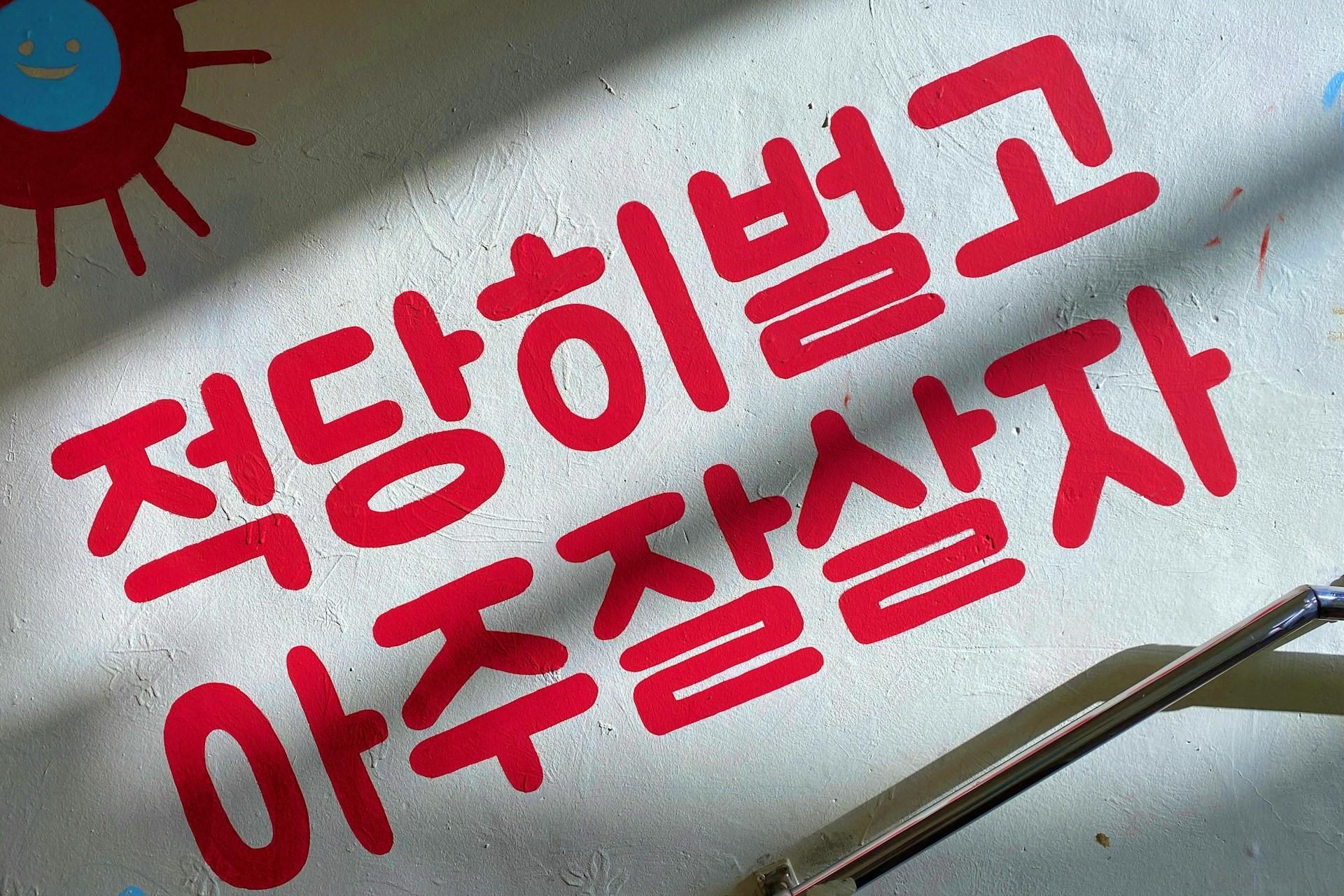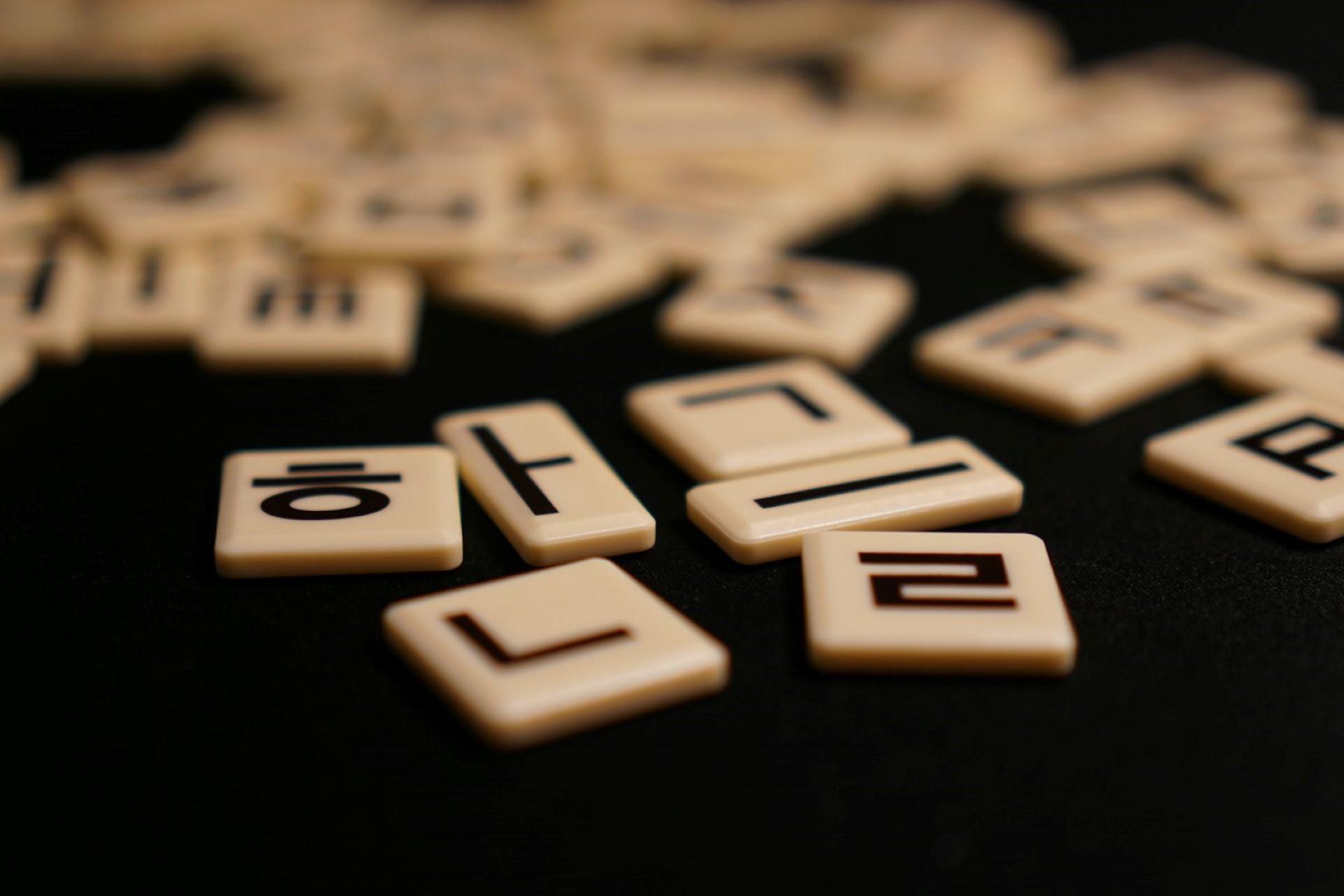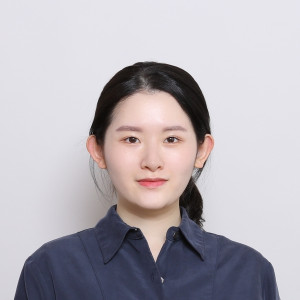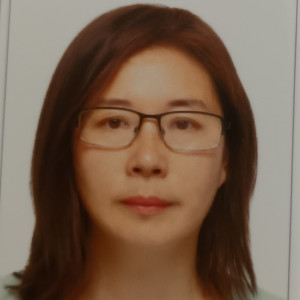Korean is spoken by over 80 million people around the world. Naturally, most Korean speakers are found on the Korean peninsula in the countries of South Korea and North Korea, where it's the official language of both these countries.
Korean is also an official language in both Yanbian Prefecture and Chanbai County in China, where it's classed as a recognised minority language.
Korean is fairly unique, though, as it's classed by linguists as a language isolate. This means that it has no other living or dead languages in its language family. While languages like French, Spanish, Italian, and Portuguese are all Romance languages and related to one another as they are all derived from Latin, Korean doesn't have any relatives.
All this means is that nobody in the world benefits from already knowing a similar language when they decide to learn Korean. Naturally, there are speakers of some languages that will benefit from similar concepts in Korean, but there aren't any shortcuts to already know a similar language.
With that in mind, how difficult is it to learn Korean?
Here's our quick guide with everything you need to know.

How Long Does it Take to Learn Korean?
One good indicator of how difficult a language is to learn is how much time you'll have to spend learning it.

We've already alluded to the fact that you can learn a language more quickly if you speak a language that's somewhat related to another language that you already speak.
English speakers do well in learning languages related to English and even other European languages that are more distantly related. French speakers will find Spanish easier than English speakers, but English speakers will likely find German easier than Italians will.
When it comes to Korean, the amount of time it'll take you to "learn" the language will depend on the level you want to reach. Even native speakers can improve their language skills so don't think you have to stop learning or using Korean once you reach a level. These aren't destinations but rather places you can stop off at along the way.
Learning the Basics
If you're travelling to South Korea or just want to get started with the language, you'll want to know some basic Korean vocabulary.
You don't need to be a master of the language or even conversational at this stage, you just need to know enough to get by, understand some things on a menu, ask for help, and know any other aspects of the language that will make travelling in Korea easier.
For this, it can help to learn the Korean alphabet as this will help you with things like signs and menus. The most important signs, especially in airports, public places, and tourist destinations will feature recognisable symbols and even English lettering and wording, but simply being able to read the language will help you with getting around.
Common expressions are a must and you'll want to learn how to formulate questions. Even if most of these questions are just to help you ask if somebody can converse in English with you, it's a start.
While we'd recommend that you try to keep every conversation in Korean as much as possible to help you progress, when communication completely breaks down, it can help to have the option to politely ask if you can use English.
It's suggested that learning Korean to this level can be quite easily achieved within 3 months of study.
Speaking Korean Conversationally
The term “conversationally” is quite a broad one and every language learner will have their own idea of what this means.

If you're starting from nothing, then I think we can define “conversational” as just having enough Korean to have basic exchanges with people.
The kind of things you'll need to be able to do is ask questions, make statements about events in the past, present, and future, and voice your opinion on things.
We're not suggesting that these conversations will be the most riveting ones that you've ever had, but you'll have enough Korean to go beyond just asking for things in restaurants and from tour guides to making small talk with locals.
This level comes after you get to grips with the basics of the Korean language and after three months of study, you should be looking to move into this area with your newfound language skills, using the proper Korean honorifics when addressing people.
This is the stage of language learning where motivation is key because you'll likely be here for a while. You'll very quickly learn set expressions, but to go from making small talk to having really meaningful conversations can take a long time and this is when learners start to lose interest as they feel they're not making progress.
Most learners are making progress it just feels like they aren't because they're not quite fluent in the language and since conversations can be so wide-ranging, the gaps in their Korean are often put on display in most exchanges.
Don't worry, though, with hard work and regular study, you can work your way up to fluency.
Speaking Korean Fluently
Fluency is another term that depends on the learner. Stricter learners will define fluency as speaking like a native speaker with very few errors. However, fluency can also mean being comfortable in most situations with the language skills you have.
You may make errors, but as long as these errors don't affect the meaning too much, you can largely get away with them, especially if it's clear that you're not a native speaker and are trying.
To become professionally fluent in Korean, the level that the US expects its diplomats to have, it'll take you around 2,200 hours, 88 weeks, or the best part of two years.
You can always reach this level without working as a diplomat, though.
What Makes Korean Hard to Learn?
There are a few things that make Korean harder to learn than other languages. Here are just a couple of the trickier things that may make learning Korean more difficult.
The Alphabet (Hangul)
English uses the Latin alphabet whereas Korean has its own writing system known as Hangul. While the writing system itself is actually a triumph and responsible for increased literacy amongst Korean speakers, it is different.
If a literate English speaker learns another language that uses the Latin alphabet, they don't have to learn any new letters. They'll have to learn how the letters are pronounced in their new language, but that's it.
With Korean, any English speaker will have to take the time to completely learn this new writing system.

Korean Grammar
Like with any language, the grammar in Korean is different to English. The more similar a language's grammatical structure is to your own, the less you need to learn.
With Korean, this isn't the case so you'll need to learn about a different word order and grammatical particles, a phenomenon that occurs in many languages including English, but the particles in languages like Japanese and Korean are used a bit differently.
How Can You Make Learning Korean Easier?
If you're looking for a silver bullet for becoming fluent in Korean, you won't find one here. Every language is difficult to learn, which is why we all spend the first few years of our lives learning just how to speak our mother tongue.
Regular Practice
It can help to think of the brain like a muscle. In most cases, the more you do something, the better at it you get.
Regularly practising your new language skills can make you much better at the language in question. Even if you're taking Korean lessons or working with a private Korean tutor, you should be practising your Korean outside of your lessons.
If possible, you should be using your new language wherever and whenever you can. You can watch TV shows like K-dramas, listen to K-pop and Korean music, or even just put your devices in Korean (once you reach an appropriate level) so that you have opportunities to practise Korean throughout your day.
Get Help with Your Korean from a Private Korean Tutor
When it comes to learning languages, you can make everything easier through expert guidance. With languages like Korean, it can help to work with a private tutor exclusively or in addition to regular Korean classes.

On the Superprof website, you can search for tutors offering Korean lessons, see how much they charge, and read what their other students have to say about them.
Whether it's through local tutors or online tutors, you'll find that you can learn what you want using teaching approaches that work for you.
A lot of the tutors on the site also offer the first session for free, so why not try a few of them out before choosing which one is right for your Korean language goals?
Summarise with AI:















